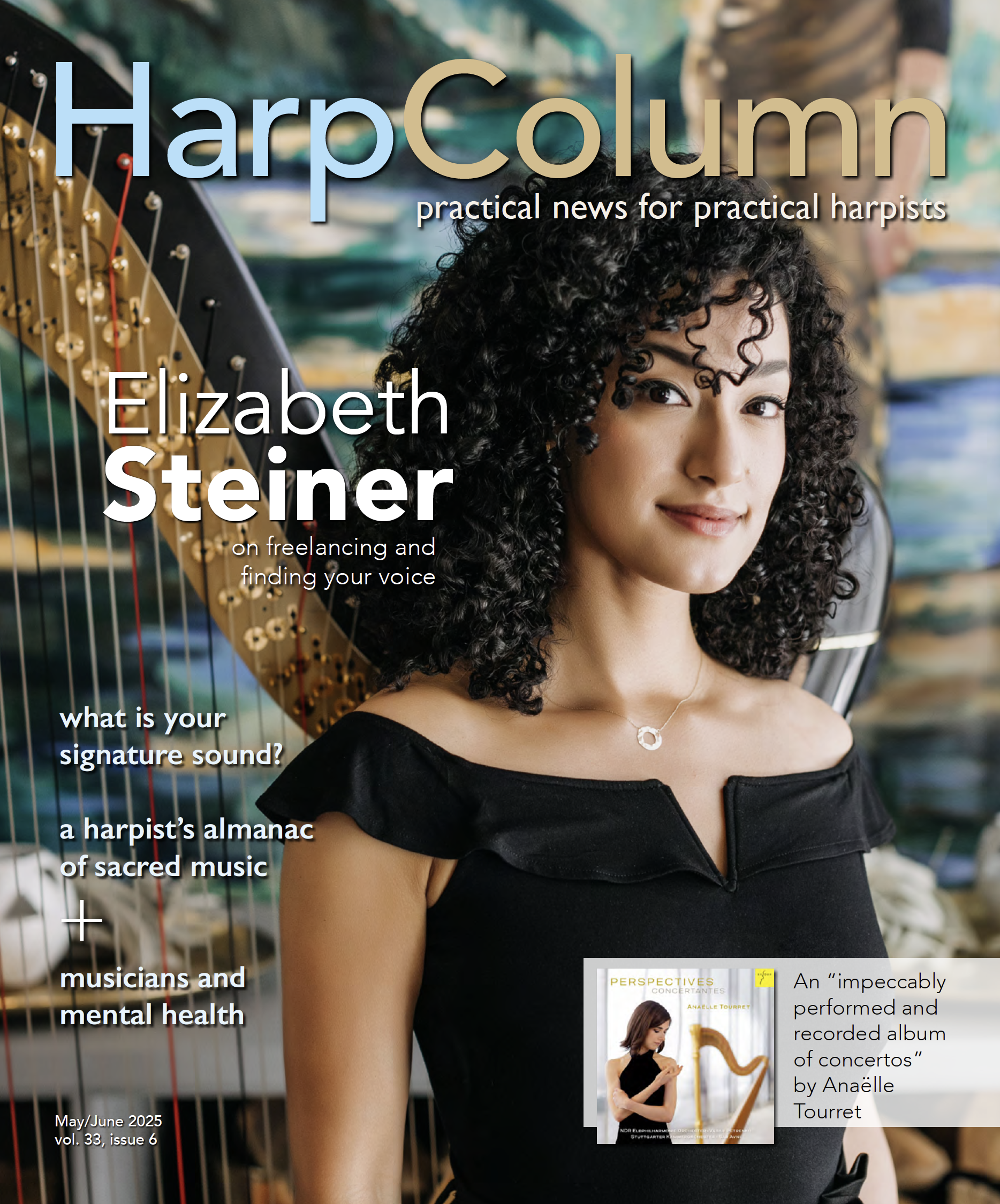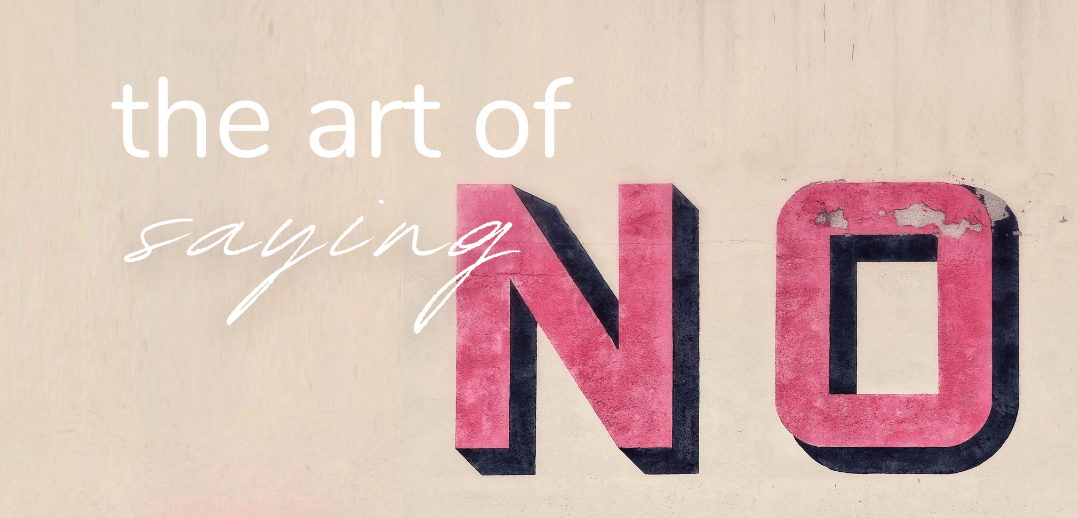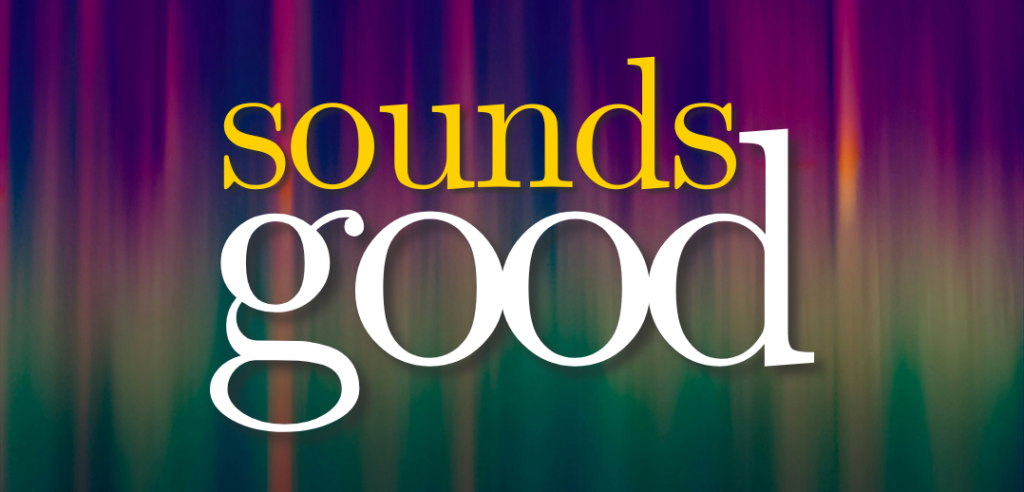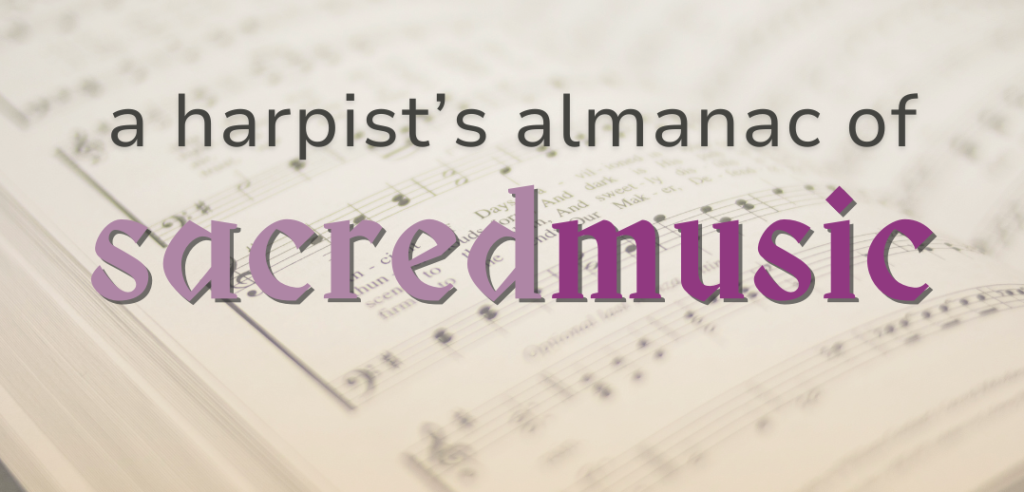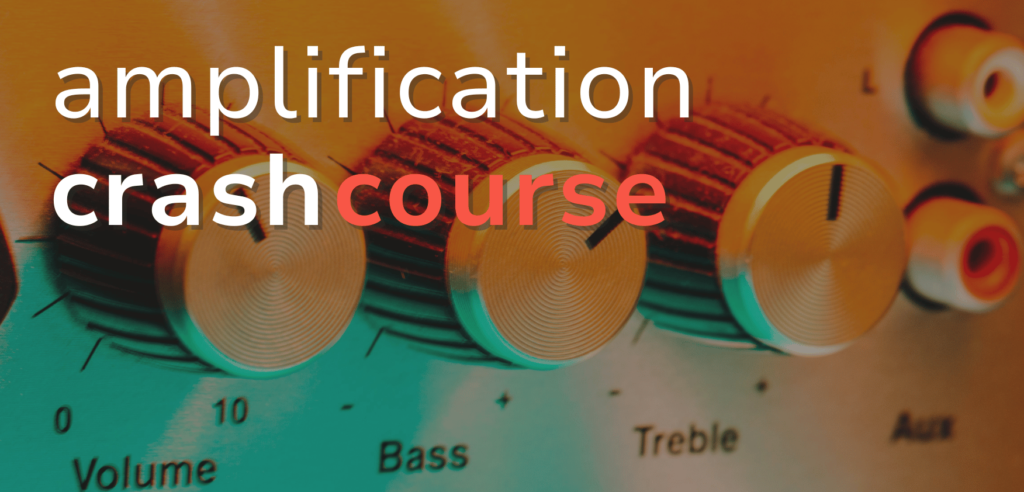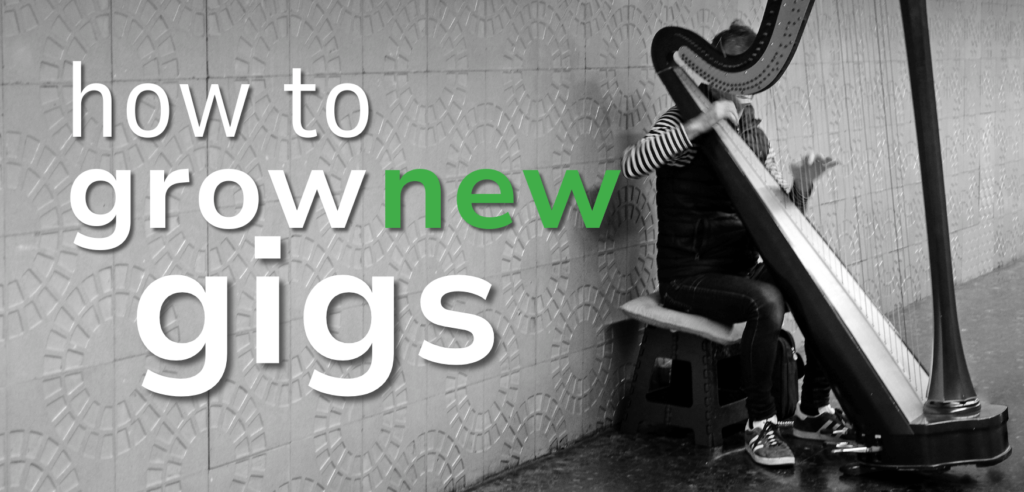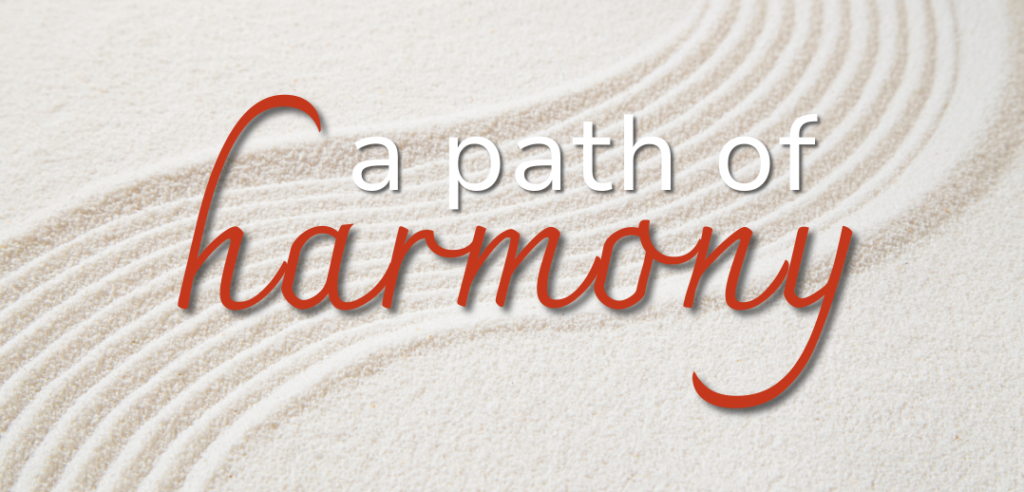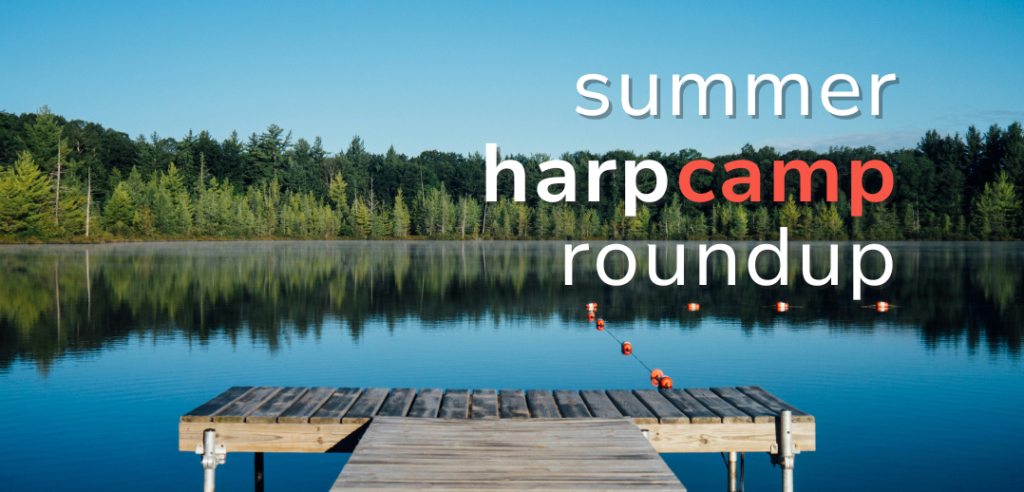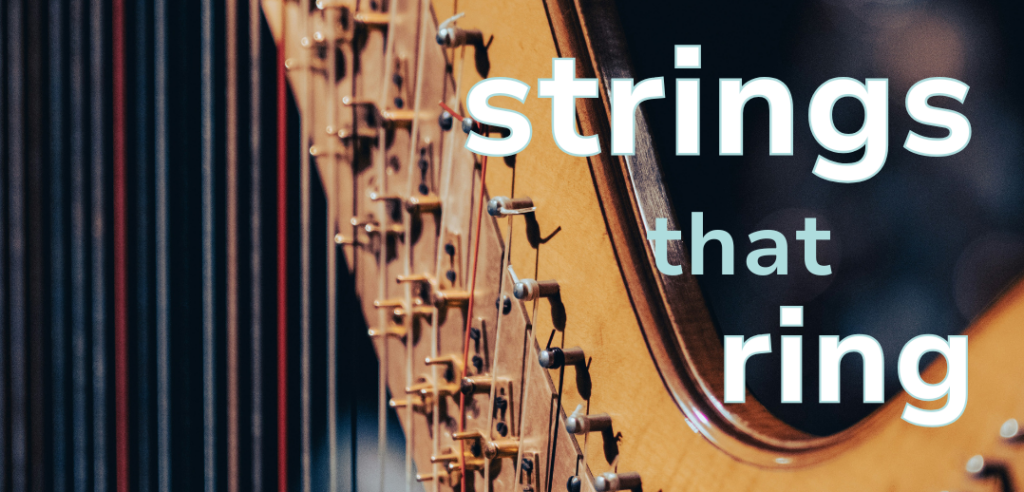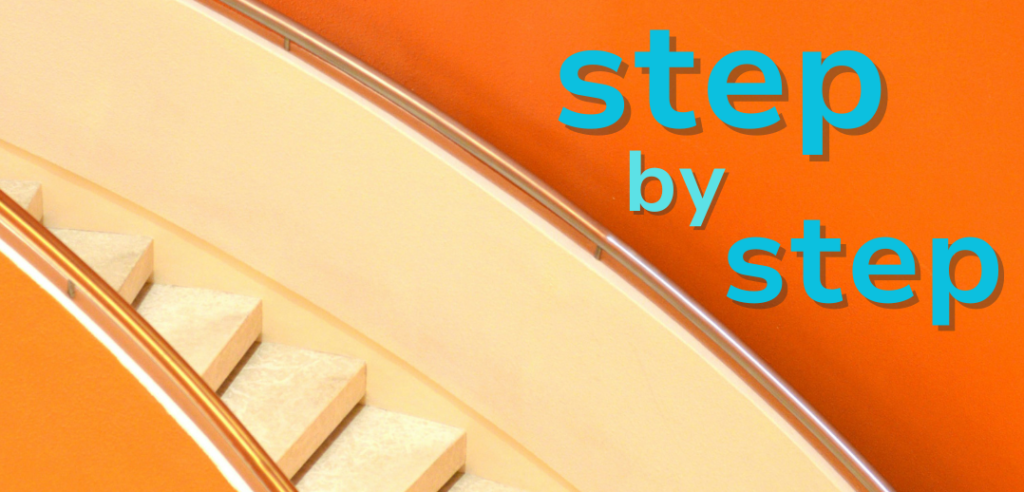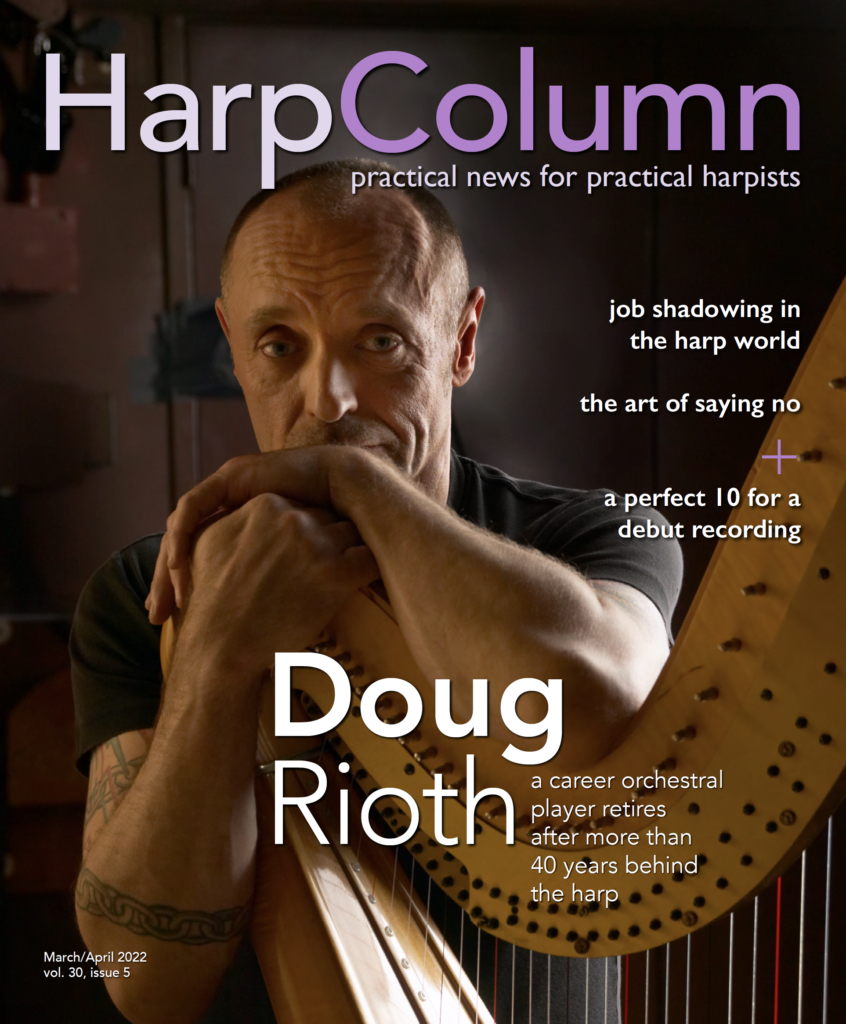Since last spring, an estimated 33 million Americans have quit their jobs. It’s being called The Great Resignation or The Great Reshuffle, and it is reshaping the way we think about work. Most of the jobs being left were traditional positions in hospitality or retail, but the reasons people have left these jobs in droves extend beyond these sectors to nearly everyone. The pandemic caused many people to reevaluate their priorities and how they are compensated for their time and expertise. It also gave many—especially musicians—a glimpse into what life would be like if the frenetic pace of work dramatically slowed, or even stopped. Most of us would never have chosen to simply stop working or drastically pull back, but COVID forced this reality in March 2020.
Two years later, as routines are returning to pre-pandemic paces, some are pushing back, saying no to work that would have been an automatic yes in the before times. We were curious where harpists were landing in The Great Reshuffle. Working in the gig economy is obviously different from the traditional sectors that have seen workers leaving en masse. Anecdotally, many musicians say the forced break from performing at the beginning of the pandemic brought realizations and re-evaluations about their work-life balance. Priorities shifted and many musicians talked of being more selective in the gigs they take and saying no to work that doesn’t fit their priorities.

Houston, Texas
Houston harpist Mallory McHenry admits she sometimes says no to new students, gigs, and harp-related projects, but her reasons vary. “Given the times that we live in, especially amidst a pandemic, it was necessary to say no,” she says. “However, most recently, I have been leaning into prioritizing my mental health and taking care of myself so I can continue to be the best version of me. Not only for myself, but for everyone who needs me to show up for them.” McHenry gives an example from a gig she was recently asked to play. “It was a very last-minute arrangement, and my schedule was already full. After going back and forth with the client and acknowledging that they were not going to meet the requirements of my contract, I decided to say no,” she explains. “Saying yes would have pushed my limits for what my mind and body were capable of during that time. I also have a very strong stance on how far I am willing to negotiate with a client. I said no on the principle of protecting my health and respecting my business.”
New York City freelancer Kirsten Agresta Copely says being able to confidently say no to work is a valuable tool for a musician. “Generally I will turn something down if it doesn’t meet my minimum rate, if the gig is too far to travel, or the date is too far in the future. Brides have recently been booking late into 2023, and I’m not willing to contract a wedding more than a year ahead.”

Charleston, South Carolina
Kathleen Wilson has built her freelance business in Charleston, South Carolina, over the past 35 years. She says her answer is a hard no to gigs on beaches, boats, or locations where she has to park far away and schlep her harp a long distance. A low pay rate is also a no for Wilson. “Like most everyone, refusal to accept my fee is my number one [reason for saying no], especially when it comes from a wedding planner or booking agent. We all have experienced ‘Your fee is a little out of the client’s budget. Would you accept X amount?’ or the crass, ‘Hey, gimme your best price!’”

Detroit, Michigan
Detroit-based freelancer Cheryl Losey Feder says she applies a two-part test to help guide her decisions. “I look at potential work asking ‘Is this work meaningful?’ and ‘Will it work with our family?’” Losey Feder and her husband, also a professional musician, have young children. She says the easiest thing to turn down is a gig that isn’t particularly enjoyable and doesn’t pay well. “If it’s a performance that I know I would enjoy and doesn’t pay well, or even if it pays well and I don’t think I will enjoy it, the answer gets trickier. I was recently asked to play a performance I knew I would enjoy, but for about half of my usual fee. I was honest about the pay scale from the start, and was able to negotiate an excellent rate.”

New York, New York
During the pandemic, health and safety protocols became yet another reason for declining a gig. “I’ve definitely turned down more work since the pandemic in situations where I can identify that the clients will not be adhering to CDC guidelines for guests,” Agresta Copely adds. “I have a clause in my contract now that states my vaccination status, and I reserve the right to wear a mask if I’m set up less than six feet from others.”
McHenry echoes the health concerns. “I have found myself saying no to more gigs since the pandemic began, and that is due strictly to the pandemic and how venues and clients are choosing to operate,” she says. “Once again, my health and safety are top priority.”
High priority
While fair pay is always a high priority and the pandemic has made health concerns a priority for many, what other criteria do harpists use when deciding whether to take on new work?
“Recently, my top criterion has been whether I am fully capable of giving my all to a gig or project or student. If the answer is no, even slightly, I decline,” McHenry says. “Being at your best at all times is important.” McHenry says she also declines work that doesn’t respect the boundaries she outlines in her contract and work that doesn’t align with her style of playing or her principles.
Wilson says she has developed a sixth sense about gigs and students from her four decades of work. “After asking a few questions and knowing what I want to hear or don’t want to hear, I make a call as to whether to accept the work. Truthfully, most people are fairly kind and likely stressed out. If we can get past the initial obstacle, I know the ropes and what I need to do when to make my portion of the event run well.”
Agresta Copely takes a more systematic approach. “I ask myself if it checks off at least two boxes out of the following questions: Will it be fulfilling musically? Is it a good payday? Is it in a venue or location that I really want to play? Are there other musicians on the gig or project that I’ve been eager to work with?”
Saying no can be a gut-wrenching moment.
—Cheryl Losey Feder
Losey Feder says she tries to keep her schedule and her energy available for as many artistically meaningful projects as she can, knowing that in the end, she will be fulfilled musically and personally. “Of course, work can be meaningful in other ways too,” she adds. “Financially meaningful projects are important, as are personally meaningful performances, such as performing with my student’s youth orchestra or for a charitable cause I care about.” But the most important factor Losey Feder considers is how a project will work with her family. “A large amount of my work is out of state, and as a mother, this can bring many logistical and personal challenges,” she explains. “How long do I need to be away from my children? Can I bring them along? Is there childcare that I trust in the city I’m traveling to? As all parents can attest, it is an incredibly tricky balance to be a professionally-fulfilled mother.”
Explain yourself
What happens after you say no? Is “no” a complete sentence, or do you feel like you need to explain your answer? While no can be a complete answer, sometimes more context needs to be given. All of the experts we spoke with took a remarkably similar approach when saying no. “For gigs, I often don’t feel an explanation is required. I simply say I am unavailable and pass along the work to another harpist,” Losey Feder says. McHenry notes that she feels a no to new students merits an explanation. “If it is a [new] student, I do tend to elaborate as to why. I do offer to assist them in finding another musician or teacher who might be better available to offer their services.”
Wilson says she might push back delicately on the client when saying no. “I explain my reasoning and give them an opportunity to respond and come around to my way of thinking. Some do, some don’t, some compromise, and I no longer worry about it,” she says.
One circumstance where there was agreement that an explanation might be needed is when there is a personal or professional connection at stake. “Recently, I had to turn down a chamber performance at Carnegie Hall because it fell within my Broadway show’s lock-in period,” Agresta Copely says. “I made sure to give the conductor that information so it was evident that I had a scheduling conflict and wasn’t just declining.”
All the feels
Having your priorities straight can help assuage negative feelings that could arise from saying no to work.
“I feel fine saying no because I have been mindful of the answer before declining,” Agresta Copely says. “Most of the time, the answer is easily recognizable to me and therefore, I don’t have any regrets.”
Wilson agrees. “I have my kids to visit, my animals to play with, and a much more balanced view of life.”
No matter how confident you might be in your decision, turning down work can still conjure up feelings of regret, worry, or even the dreaded FOMO (fear of missing out). “Saying no can be a gut-wrenching moment,” admits Losey Feder. “Some of the hardest moments of my career have been sending the email to resign from a job or saying no to a performance opportunity, even when I know in my heart it was the right decision. As harpists, we all have so much love, passion, and work invested in our careers. But the hard truth is that it’s not possible for any one of us to do it all.”
McHenry says she can feel stressed when she declines a job. “This is our line of work and our livelihood as harpists. Turning down work can be stressful financially and can weigh heavily when it comes to decision making. Overall, I acknowledge that I did what’s best for me as a person and musician and find peace with my decision.”
It takes time
While the pandemic has been an external force on priorities, suddenly reshuffling what is important for many people, time is a natural—but much slower—influence shaping priorities.
Wilson says her time has become more valuable to her as she has gotten older and wiser. “I have played nearly 6,000 events in my career, and during my most productive years I had a tremendous physical capacity to work, which led to many ridiculously busy weekends. I do not want to keep that pace week after week now,” she says.
“I’ve gotten better at saying no through the years,” Agresta Copely notes of her three decades as a professional harpist. “Experiences—both bad and good—helped shape what I’m willing to accept now.”
Losey Feder, who has played professionally for 14 years, says she feels lucky to be at a place in her life where she can be more selective about the work she takes. “I have a much clearer vision of my career goals and what work I’m striving for,” she says. “I am not as scared to have a few empty weeks on my calendar, knowing I can use that time to tackle another larger practice project.” She points out that being a freelancer after spending 10years as a full-time orchestral harpist has also changed how she approaches taking work. “When employed by an orchestra, I knew my schedule months, if not a year, in advance. It made scheduling outside work much more straightforward. As a freelancer, there is the constant gamble of ‘if I say yes to this, will I regret it if I am asked to do that.’ That is one reason why I am so selective in what I commit to.”
Even McHenry, who is just seven years into her professional career, says she has refined her selection process. “I used to say yes to every opportunity. While there is nothing wrong with that, I realized I need time and space to continue to be creative and to tend to my health,” she says.
“Saying no to some things was the way I was able to have a great work/life balance.”
Expert advice
Saying no to work is rarely easy, so what should harpists keep in mind when making their decision? Agresta Copely suggests coming up with a set of questions to ask yourself and understanding the long-term consequences of each decision. “Following your own rules for what you want out of a gig or project will always steer you in the right direction,” she says. McHenry says to ask yourself whether the work is worth your time and what you will gain from the experience. “Does this opportunity represent the expertise and skill you dedicate to your craft? Will you experience burnout and fatigue or make memories that will last a lifetime?”
Wilson advises harpists to set their standards high. “Easy to say, but curb your desperation and don’t settle for a rock bottom fee from a booking agent with the hopes that they will make it up to you.”
Finally, Losey Feder says keeping a long view in short-term decisions will put you on the right track. “Always keep in mind what direction you want to steer your career, and use that as your criteria for where you invest your time and energy.” •
Lasting change
A reshuffling of priorities is not the only way in which our lives will emerge changed from this pandemic. We asked harpists what change in their harp life resulting from the pandemic will stick in their post-pandemic harp life.

It’s not necessarily a change, but more of a realization of how supportive, open, and kind our harp community is. I’ve managed to keep up contact with so many harpists throughout the world—it’s been key to my mental health over the past two years of relative isolation to have this group of wonderful people in my life. I’ve made so many new connections and deepened old connections, and I really want to ensure that I keep these connections in the future, whether virtually or in real life.
—Rachel Hair, Glasgow, Scotland

I’m sure I’m not alone in saying that online teaching, Zoom meetings, virtual conferences, etc., have been the most major changes in my harp life thanks to COVID. While at first it seemed daunting, overwhelming, and frustrating, over time I found that I actually enjoyed, and in some ways preferred, the online way of doing harp. Of course, I will always love live performances, but being able to reach more people in teaching, workshops, and pre-recorded performances has proven to be quite gratifying, and I plan to continue building on these platforms in the future.
—Rhett Barnwell, Atlanta, Georgia

The pandemic forced me to take a break from being a touring musician, and it was surprisingly restorative. Although I still did the festivals and workshops that moved online (while wearing cozy slippers), it took way less time and energy than planning and traveling to every gig the way I’d been doing for the past 40 years. I did make it to a few in-person harp events last year, and it felt amazing and fun after teaching online only. So in my post-pandemic harp life, I don’t plan to be quite as busy as before, but I still hope to travel to gigs because there’s no substitute for the energy of a live audience or the transcendent sound of a roomful of (in-tune) harps playing together. Packing list: cozy slippers.
—Kim Robertson, Milwaukee, Wisconsin
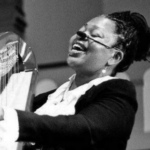
The pandemic forced my husband and me to learn a new skill—livestreaming—that has allowed us to continue sharing music with our local fan base when our in-person performances were canceled at the beginning of the pandemic. Our livestreams started out very bumpy. However our clients and fans are so supportive and happy to be able to see and hear live music from me virtually. It has expanded our fan base and client base globally, and we continue to learn how to successfully make the harp sound beautiful on Zoom and other platforms.
—Destiny Muhammad, Oakland, California
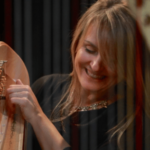
The importance of patience—taking the time to appreciate every moment and enjoy each and every note I play.
—Kathryn Andrews, New York, New York

I committed to an intentional warm-up time using arpeggios, scales, and strength exercises, and I read through etude books. My ever-evolving warm-up time now includes modulations, chord progressions, and improvisation. I bonded with my lever harp!
—Barbara Chapman, Virginia Beach, Virginia

For me, one change from the pandemic that I think will stick around even post-pandemic is the ability to do virtual lessons. While I am happy to be back to in-person lessons for many students, I am glad to now feel comfortable with teaching virtual lessons. Several students moved away during the pandemic, and it has been wonderful to be able to continue their lessons remotely. I also love the option to switch to virtual on days where the weather is bad, or someone in the household is sick. Since I live in a large metro area, the option to offer a hybrid virtual/in-person lesson schedule makes driving distance less of a barrier for harp lessons.
—Hope Cowan, Houston, Texas

After two years of living and working in a pandemic, it really clicked for me to take the time to play the music that I love to play. There are so many things that keep us away from the pieces and songs that made us fall in love with our instruments. Finding my way back to those roots and incorporating them into my life has honestly saved my career. In the same breath, spending time with the people I love, even digitally from a distance, has brought me back to my love of the harp.
—Mallory McHenry, Houston, Texas

I started composing intently during the pandemic, and that is something that I’m continuing to place as a priority in my harp life. I have a new album in the works that will be released later this year.
—Kirsten Agresta Copely, New York, New York

For over a decade now, certainly pre-pandemic, I have made it a point to develop other income streams. I have cultivated interests and abilities, gained qualifications and certifications, thus allowing me to walk away from music at times to pursue other things. I come back when it’s time to be a harpist again. Sometimes I’ll change jobs several times a day. The older I get, the more I value personal growth and making my brain work in vastly different ways.
—Kathleen Wilson, Charleston, South Carolina

I never even considered teaching online before the pandemic, and now it is a regular part of my weekly schedule. Having students from around the world, and the opportunity to easily give a remote masterclass, is an exciting change to post-pandemic harp life.
—Cheryl Losey Feder, Detroit, Michigan •




